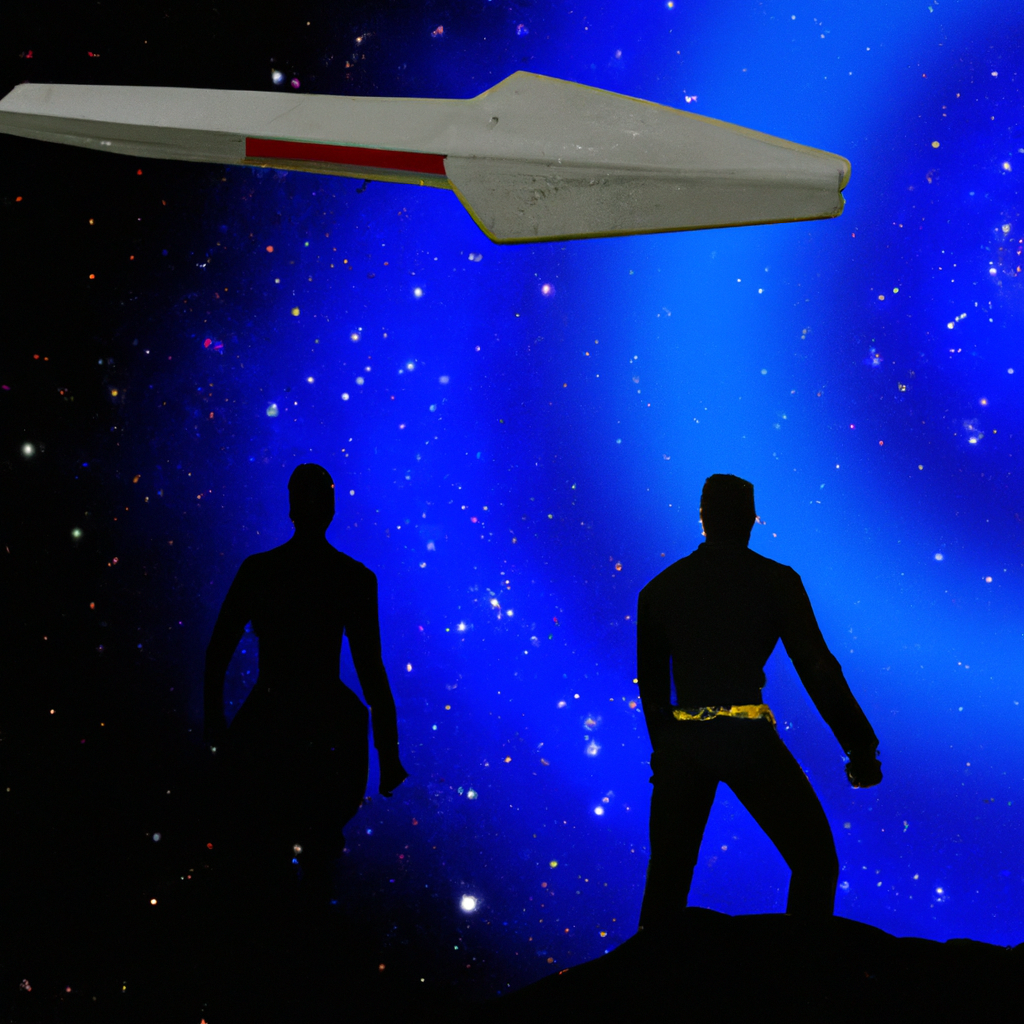Boldly Going Beyond the Final Frontier: Exploring Star Trek’s Enduring Legacy
by Jon Fenner

Introduction: For over 50 years, Star Trek has been a cultural phenomenon, captivating audiences with its unique blend of science-fiction, adventure, and philosophy. The franchise began in 1966 with the original series, and has since grown into a multimedia empire with multiple spin-offs, movies, books, and games. Despite its beloved status, Star Trek has also always pushed boundaries and challenged viewers to boldly go where no one has gone before. Let’s explore the enduring legacy of Star Trek and why it continues to inspire and entertain generations.
Boldly Venturing Beyond the Final Frontier
One of the most exciting aspects of Star Trek is its emphasis on exploration and discovery. From the first episode, Captain Kirk and his crew set out to boldly go where no man has gone before, venturing into uncharted territory and encountering strange new civilizations. This spirit of adventure has been carried over into the other series and movies as well, with the crew of the USS Enterprise-D encountering Q, the Borg, and the Dominion, to name a few.
But the concept of exploration goes beyond just physical space. Star Trek also explores social, political, and ethical frontiers, questioning our assumptions about race, gender, religion, and more. The franchise has been known for its inclusivity and diversity, featuring characters from various backgrounds and beliefs. Star Trek challenges us to think critically about our world and imagine a better future.
Furthermore, Star Trek encourages us to pursue knowledge and understanding, to seek out truth and enlightenment. The characters often face moral dilemmas and ethical quandaries, forcing them to confront their own biases and assumptions. In a world where fake news and misinformation are rampant, Star Trek reminds us of the importance of reason, science, and logic.
Discovering the Timeless Appeal of Star Trek
It’s no secret that Star Trek has a passionate fanbase, with conventions, fan clubs, and online communities dedicated to all things Trek. But why does Star Trek continue to resonate with people after so many years?
Part of the answer lies in the franchise’s optimistic and hopeful outlook. Despite the many challenges and threats that the characters face, they never lose their sense of purpose or hope for a better future. Star Trek presents a vision of humanity that has overcome its flaws and differences, united in a common goal of exploration and cooperation.
Moreover, Star Trek has always been ahead of its time in terms of its storytelling and themes. Many episodes and movies have tackled issues that are still relevant today, such as climate change, war, prejudice, and technology. The franchise has also been a trailblazer in representation, portraying strong female characters, LGBTQ+ characters, and characters of color long before it was the norm in mainstream media.
Conclusion: Star Trek is not only a cultural touchstone, but also a guidepost for how we can navigate our own lives. It inspires us to explore, question, and dream, while reminding us of the importance of compassion, understanding, and unity. The franchise may have started as a TV show, but it has grown into a phenomenon that has shaped our popular culture and our collective imagination. As we continue to boldly go beyond the final frontier, Star Trek will remain a beacon of hope and inspiration for all.
Introduction: For over 50 years, Star Trek has been a cultural phenomenon, captivating audiences with its unique blend of science-fiction, adventure, and philosophy. The franchise began in 1966 with the original series, and has since grown into a multimedia empire with multiple spin-offs, movies, books, and games. Despite its beloved status, Star Trek has also…